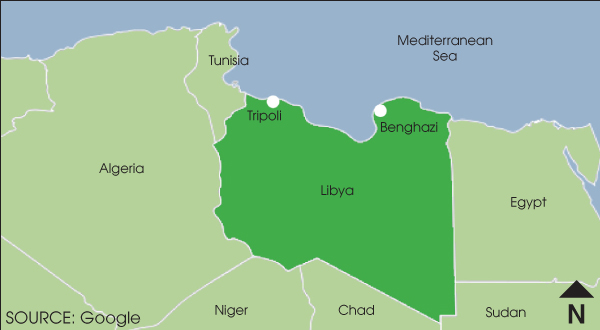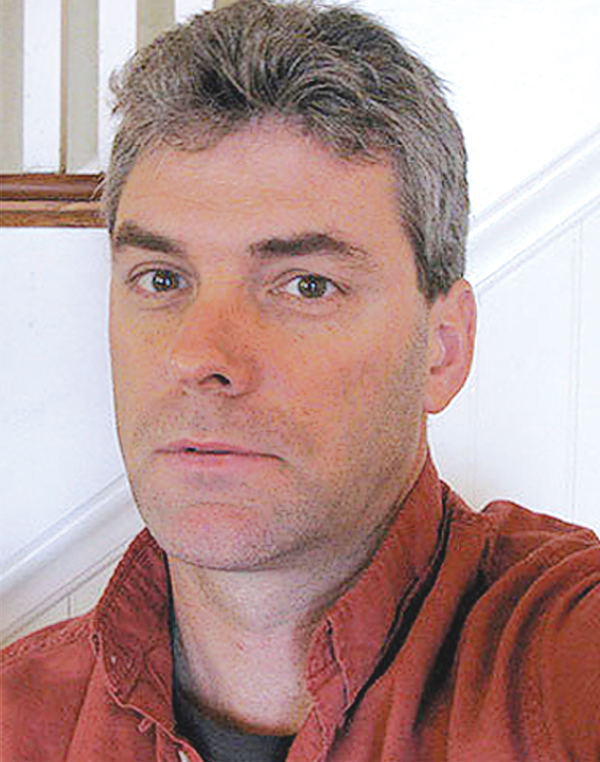
Two University of Miami alumni who had been detained by Libyan national militia were released Wednesday.
While covering the conflict, the two Miami-based journalists, Getty Images photographer Joe Raedle, 45, and the French News Agency (AFP) reporter Roberto Schmidt, 45, along with AFP journalist Dave Clark, were abducted at gunpoint March 19 near Ajdabiya.
Raedle was a catcher on the UM baseball team from 1984-86. He lives in Miami and is married to Miami Herald Interactive Editor Nancy San Martin.
“He told me, ‘I’m fine; everything is OK now’… and then there were a lot of tears,’’ San Martin told The Miami Herald. “I can finally breathe.’’
Schmidt, who normally works out of the Nairobi bureau, graduated from UM in 1989.
The journalists were captured by Colonel Moammar Gadhafi’s forces while traveling to eastern Libya on Friday. They were released Wednesday morning in Tripoli and are already on their way back to the United States.
“When I heard about it, the world kind of stopped at that moment for me, because I know Joe so well,” said Jim Virga, a visual journalism professor in the School of Communication. “Those were four of the longest days of my life.”
Virga and Raedle have been close friends and coworkers for the last 20 years. Virga also considers Schmidt a good friend, saying he was confident in the journalists’ abilities to make it out of captivity.
“These guys are the top professioinals, I mean it in every sense,” Virga said. “I imagined them being calm the whole time. I knew they were very smart and very experienced, so they would handle it the best way possible.”

Raedle, Schmidt and Clark were attempting to cover the Libyan rebels who, for the past month, have been protesting the Gadhafi regime and taking control of the western coastal cities including Benghazi. Gadhafi’s forces put down these citizen rebellions with brutal air strikes.
Last Friday, eight years to the day after the invasion of Iraq under Operation Iraqi Freedom, the United States led the international military operation into Libya, beginning Odyssey Dawn.
Odyssey Dawn is the American arm of an international coalition supporting a United Nations resolution to protect the Libyan people from Gadhafi’s violent and autocratic regime.
Prior to the invasion, President Barack Obama warned that if Gadhafi continued to ignore the United Nations’ requests for a ceasefire and retreat, military action would result.
“Left unchecked, we have every reason to believe that Gadhafi would commit atrocities against his people,” President Obama said. “Many thousands could die. A humanitarian crisis would ensue. The entire region could be destabilized, endangering many of our allies and partners. The calls of the Libyan people for help would go unanswered. The democratic values that we stand for would be overrun.”
The Gadhafi regime claimed to be abiding by the ceasefire, but artillery fire was still present and the national army began to encroach on the rebel-stronghold in Benghazi.
Before dawn Sunday, without congressional approval, but with the encouragement of U.S. Secretary of State Hilary Clinton, President Obama authorized NATO submarines to fire 124 Tomahawk Cruise Missiles at Libyan national command and control stations. President Obama has not authorized any ground troops.
Some critics of President Obama believe he needs to take a firmer position on the conflict while others worry that the United States may be involving itself in a third war.
“I’m disappointed in the president because he hasn’t picked a strong stance,” said Adam Moskowitz, a senior majoring in political science. “We need to decide whether or not we support the groups fighting Gadhafi.”
The international military coalition has begun to successfully establish a no-fly zone over the Gadhafi-held eastern Libya. Gadhafi spoke out against the conflict on Libyan state television.
“We promise you a long war,” Gadhafi said.
Last week four New York Times reporters were also captured by Gadhafi’s forces and released Monday. The only reported death of a foreign media correspondent in Libya was an Al Jazeera cameraman Ali Hassan al-Jaber who was killed on March 12 in an ambush near Benghazi.
Lindsay Brown may be contacted at lbrown@themiamihurricane.com.
Research and quotes for this report from The New York Times, CNN and The Washington Post.






